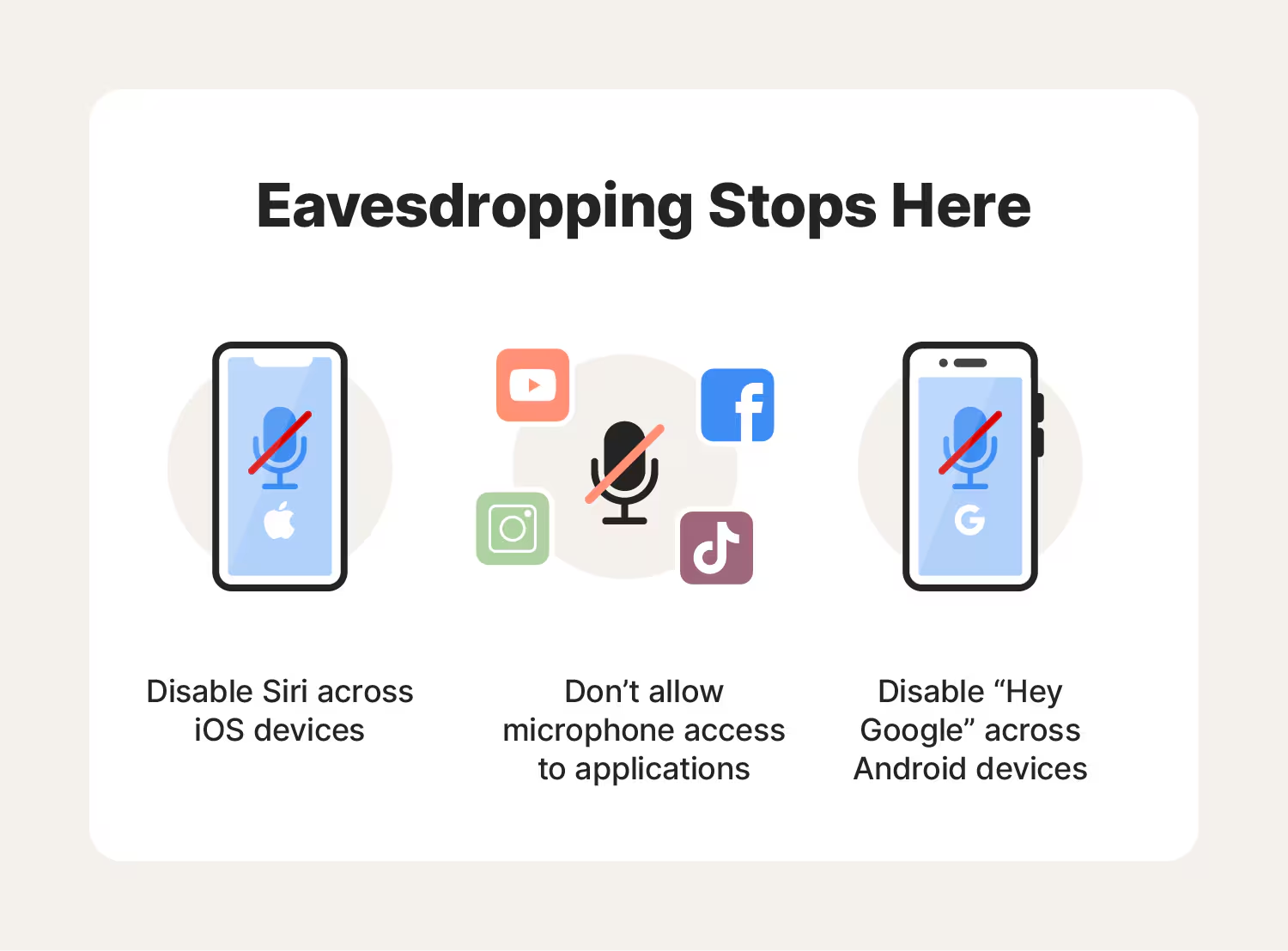Tech listening to your conversations and delivering sometimes destructive content is a growing concern in our hyper-connected world. Let’s explore how this happens, the potential consequences, and what you can do to protect yourself.
How Does Your Phone Listen?
Modern smartphones are equipped with voice assistants like Siri, Google Assistant, and Alexa, designed to make our lives easier by responding to voice commands. However, these assistants are always “listening” for their wake words, which means your conversations can be inadvertently recorded and processed.
Key Points:
- Always-On Microphones: Devices are constantly scanning for trigger phrases.
- Data Collection: Conversations are sent to cloud servers for processing, which can include unintended snippets.
- Personalisation Algorithms: AI uses collected data to tailor content, sometimes inaccurately reflecting your current emotional state.
The Destructive Side of Personalised Content
While personalisation aims to enhance user experience, it can sometimes backfire, especially during emotionally charged moments.
1. Reinforcing Negative Emotions
Imagine arguing with a partner and then seeing ads or content related to breakups. This can amplify negative feelings, making the situation worse.
- Example: After a disagreement, your phone suggests articles like “How to Move On from a Breakup” or “Signs It’s Time to Divorce.”
2. Creating Echo Chambers
When algorithms detect negative emotions, they might continuously feed you similar content, creating an echo chamber that reinforces your current mindset.
- Impact: This can trap you in a cycle of negativity, making it harder to find balanced or positive content.
3. Privacy Invasion
Feeling like your private conversations are being monitored can lead to a significant breach of trust and privacy.
- Concern: Users may become overly cautious or anxious about using their devices freely, impacting their digital wellbeing.
The Psychological and Social Impacts
1. Increased Anxiety and Stress
Constant exposure to negative content can heighten stress levels, especially if it aligns with your current emotional state.
2. Erosion of Trust in Technology
Feeling surveilled by your own devices can diminish trust in technology, making you less likely to engage with helpful features.
3. Impact on Relationships
If one partner feels that the other is too reliant on technology for emotional support, it can strain the relationship further.
Privacy Concerns and Ethical Implications
The idea that your phone is listening to your conversations raises significant privacy concerns and ethical questions about data usage.
1. Lack of Transparency
Many users are unaware of how their data is being collected, stored, and used, leading to a lack of informed consent.
2. Data Security Risks
Collected data is vulnerable to breaches, potentially exposing sensitive personal information.
3. Ethical Use of AI
There’s an ongoing debate about the ethical responsibilities of tech companies in ensuring their AI respects user privacy and emotional wellbeing.
How to Protect Yourself
While the technology is evolving, there are steps you can take to safeguard your privacy and reduce the chances of destructive content delivery.
1. Manage Your Voice Assistant Settings
- Disable Unnecessary Features: Turn off features that aren’t essential, such as voice recording history.
- Limit Data Sharing: Adjust settings to minimise the amount of data shared with voice assistants.
2. Use Privacy-Focused Tools
- Privacy Browsers and Extensions: Use browsers that prioritise privacy and block unwanted tracking.
- VPNs: Protect your online activity from being monitored by using Virtual Private Networks.
3. Be Mindful of Your Conversations
- Awareness: Recognise that anything spoken near your device could potentially be captured.
- Alternative Communication: Use face-to-face conversations or encrypted messaging apps for sensitive discussions.
4. Regularly Review App Permissions
- Audit Permissions: Check which apps have access to your microphone and revoke permissions for those that don’t need it.
- Update Privacy Settings: Keep your device’s privacy settings up to date to enhance protection.
The Future of AI and Personalisation
As AI technology continues to advance, the line between helpful personalisation and intrusive surveillance becomes increasingly blurred. It’s crucial for both users and developers to prioritize ethical AI practices that respect privacy and promote positive user experiences.
1. Enhanced Transparency
Tech companies should strive to be more transparent about how data is collected and used, ensuring users are fully informed.
2. Ethical AI Development
Developers must incorporate ethical considerations into AI design, focusing on user wellbeing and privacy protection.
3. User Empowerment
Empowering users with more control over their data and how it’s used can help mitigate negative impacts and build trust.
Conclusion
While the integration of AI and personalisation in our devices offers numerous benefits, it’s essential to remain vigilant about the potential downsides. Tech listening to conversations and delivering sometimes destructive content is a reality that underscores the importance of privacy and ethical data use. By taking proactive steps to protect your privacy and advocating for responsible AI practices, you can enjoy the advantages of modern technology without falling prey to its pitfalls.


